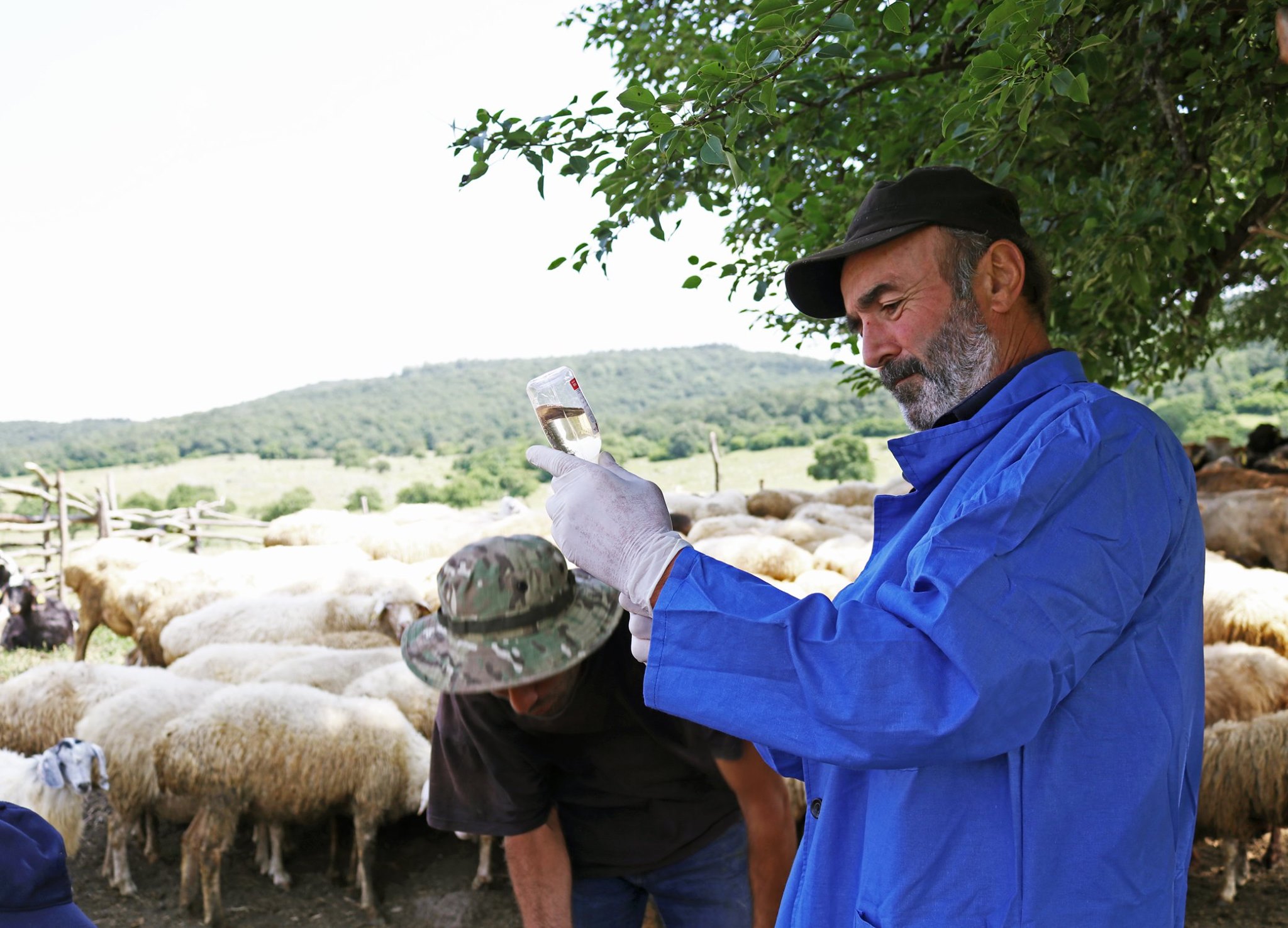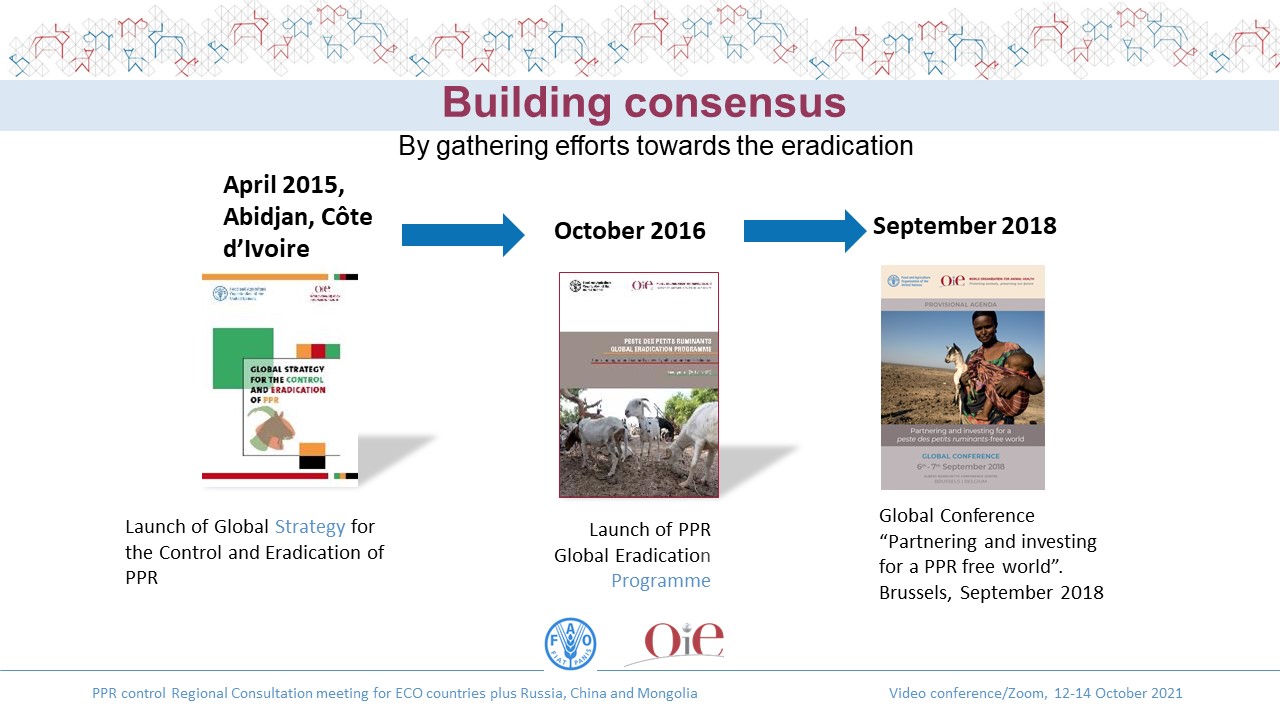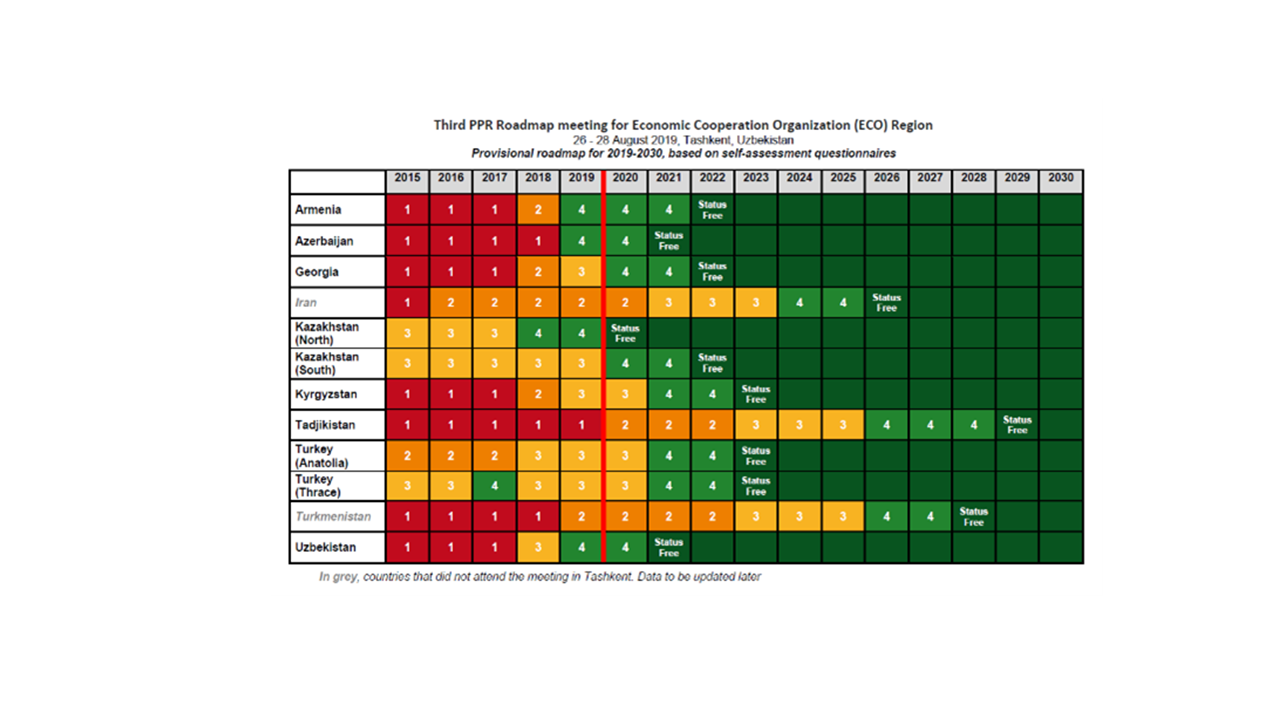
Regional Consultation meeting for Economic Cooperation Organisation (ECO) countries plus Russia, China, and Mongolia for the formulation of the second phase of the Peste des petits ruminants Global Eradication Programme (PPR GEP) “Towards Global PPR Eradication: 2022-2027”
ECO countries came together to share their experiences on implementing PPR control and eradication activities in the framework of the revision of the first five-year PPR Global Eradication Programme (PPR GEP) for 2017-2021, as well as to engage in the process of elaborating the second five-year PPR GEP “Towards Global PPR Eradication: 2022-2027”.
The PPR GEP was launched following the adoption of the Global Strategy for the Control and Eradication of PPR (GCES), and now it is time for a detailed analysis of the implementation of the first five-year Programme, including the lessons learned.
The OIE and FAO established a Core Expert Team of six independent experts to undertake the formulation and drafting of the second phase of the GEP jointly with the PPR Secretariat.
According to the participants, incomplete animal identification and movement system for small ruminants are one of the constraining factors in the sub-region. Participants stressed the importance of the control of the movement regarding nomadic animals and the coordination of neighboring countries.
Altogether, presentations were made by the Veterinary services of 13 countries.
At the national level, the strategic approach of the GCES is based on a stepwise approach consisting of four stages, which correspond to a combination of decreasing levels of epidemiological risk and increasing levels of prevention and control capabilities.
In accordance with the stepwise approach to eradicate PPR at the national level, only four from ten ECO member countries are at Stage 4 based on the last meeting’s reports. Some countries, for instance, Armenia, mention the absence of PPR at present, and others, e.g., Azerbaijan, have never reported the disease.
Several countries are still at the stage of understanding the national epidemiological situation and disease distribution.
The current situation regarding PPR of participating countries, as reported during the meeting:
It is worth noting, that the participating countries are planning to be officially recognised free from PPR by the OIE in accordance with the OIE procedure for official recognition of disease status.
As of May 2021, 59 countries and one zone were officially recognised as PPR-free by the OIE. Only Russia from participating countries is officially recognised by the OIE as PPR free Member since May 2020.
The OIE PVS missions with PPR content to date
Dr. Anna-Maria Baka, Project Officer of the OIE Status Department, reminded participants that the OIE Members can include specific content related to global priority diseases and issues, such as PPR when requesting a PVS Evaluation and Evaluation Follow Up mission from the OIE. Several countries from the region have already benefitted from a PVS Evaluation mission with PPR Specific Content, for instance, Turkey (2017), Iran, and Mongolia (2019).
At the end of the Regional Consultation meeting, the Regional Advisory Group (RAG) meeting was held. Uzbekistan, Kyrgyzstan, and Georgia are members of the RAG representing the ECO countries. The main purpose of that event was to discuss the role and responsibility of the RAG and encourage members to actively be involved in the GEP activities, including by participating in such events to share experiences and knowledge between countries and regions. During that event, the Members offered to liaise with PPR RAG of the Middle East and the Association of Southeast Asian Nations (AESAN) to exchange sub-regional experience regarding PPR eradication efforts worldwide.




